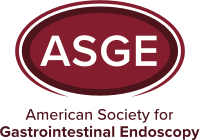Columbia University Medical Center
Columbia University Medical Center
Division of Digestive & Liver Diseases
630 West 168th Street, Box 83 Room PH20-312
New York, New York 10032
(212) 342-4776 (V)
Website
2 Positions Available
Program Type: Both ERCP & EUS
Authorized Administrative Official: Helena Logan (email)
Program Director: Kavel Visrodia, MD (email)
Duration: 1 Year
Inclusive Dates of the Program: 7/1/2026 to 6/30/2027
Program Website: columbiagi.org/
Accepts applicants from outside of North America? No
Accepts applicants with J1 visas? No
Accepts applicants with H1B visas? Yes
Accepts applicants with E3 visas? No
Supervised ProceduresProcedure |
Faculty Involved in AEF Training | Total Annual Volume | Annual Volume with hands-on AEF Involvement |
|---|---|---|---|
| ERCP | 4 | 722 | 100% |
| Diagnostic EUS | 4 | 896 | 100% |
| Interventional EUS | 4 | 100 | 100% |
| Deep enteroscopy | 4 | 37 | 100% |
| Luminal stenting | 4 | 100 | 100% |
| ESD | 2 | 100 | 100% |
| Bariatric endoscopy | 2 | 30 | 100% |
| POEM | 2 | 40 | 100% |
Unsupervised Trainee ActivitiesProcedure |
Value |
|---|---|
| General GI procedures (per year) | N/A |
| Inpatient general GI service (weeks/year) | N/A |
| Inpatient advanced endoscopy service (weeks/year) | 26 weeks/year (Interventional Consult service split with co-fellow) |
| Ambulatory clinics (per year) | N/A |
| Committed time for research (days/month) | N/A |
Requirements for Application
- Standard ASGE Application Packet
- ASGE Application
- Post-Undergraduate Education
- USMLE Scores
- Certification of Completion of Residency
- Prior to appointment in the advanced endoscopy fellowship, fellows should have completed a three-year ACGME-accredited gastroenterology fellowship
- Fellows from non-ACGME-accredited programs must have completed at least three years of gastroenterology education prior to starting the fellowship
- Personal Statement
- Curriculum Vitae
- 3 Letters of Reference
Additional Information about Program
The Interventional Endoscopy Service At Columbia University Medical Center teaches both ERCP and EUS.
The fourth year advanced fellows take part in the academic activities of the Division and gain clinical experience in advanced endoscopic procedures though an apprenticeship model of training. Clinical care of patients including understanding the indications, alternatives, correct procedure preparation, follow up care and appropriate physician-physician and physician-nurse communications are emphasized through a mentoring process, so that the fellow will always learn the procedures in clinical context. The advanced fellow is appointed for the year as an Assistant Attending at New York Presbyterian and serves as the “point” physician for our inpatient interventional consultation service. By working with the categorical gi fellows and medical and surgical housestaff , elements of triage are learned and clinical decision making skills are honed. Our service is an Interventional Service, not an ERCP service, an EUS service, a luminal patency service, a difficult polyp service, or a Barrett’s service. The procedures are used as needed by the patients and frequently the same operator does multiple procedures on the same patient during a single sedation session. The interventional service interacts with exceptional multidisciplinary centers including The Pancreas Center and the Center for Liver Disease and Transplantation. Weekly clinical conferences are held separately with each of these groups and those centers are often the source of our most challenging and rewarding cases. With this sound clinical and exceptional interventional procedural education provided, our graduates have continued in academic medicine and many to leading interventional and/or EUS programs.
The procedures performed are varied but the backbone of the program is ERCP and pancreatiobiliary EUS. Indications for our ERCPs vary from simple stones to complex strictures in patients with altered anatomy. We stress appropriate use of adjunct procedures during ERCP including intraductal ultrasound, cholangiopancreatoscopy, novel imaging modalites such as endoscopic confocal endomicroscopy. EUS and EUS/FNA/FNI (electronic array instruments and mechanical miniprobes) used for diagnostic and therapeutic indications and frequently is combined with fluoroscopy for difficult and/or novel EUS ERCP procedures, including EUS guided transmural cholangiopancreatography and related interventions. Overall, more than 700 ERCP and almost 900 EUS procedures are performed annually, including 400 FNA/FNI.
Additional high volume procedures include endoscopic mucosal resection, ablation of Barrett's esophagus, stenting for lumenal patency and deep enteroscopy. (Single and Double Balloon Methods). Although exposure to endoluminal surgical procedures and NOTES is available, we do not train to competency in these procedures.
Please Note: All data in this program description is entered on a voluntary basis
